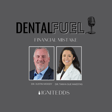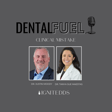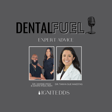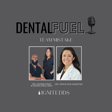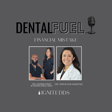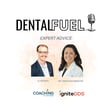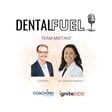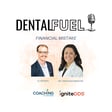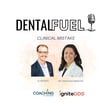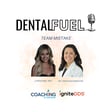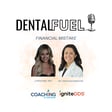
The Mint Door: Financial Mistake
This week on #DentalFuel Tanya Sue Maestas, Laura Schwindt, and Karen Tindall delve into pivotal financial mistakes made early in their dental careers and the invaluable lessons learned. Laura shares her story of hiring the wrong consultant by ignoring her gut feeling, highlighting the importance of adhering to one's values in practice management. Karen discusses the challenges she faced as a new associate in the UK, stressing the need for due diligence and legal advice before committing to contracts. The episode also covers the financial implications of transitioning out of clinical dentistry and offers practical advice on maintaining financial stability during such transitions. Tune in for these essential insights on navigating financial pitfalls and fostering financial resilience!
Key Takeaways:
- Trust Your Gut Instinct: When making significant financial decisions, always listen to your gut feeling to stay true to your values.
- Due Diligence is Crucial: Seeking legal advice and consulting with a mentor can prevent potential pitfalls, especially when entering new agreements or contracts.
- Financial Planning for Transitions: Streamlining expenses and making informed decisions can ease the financial burden when transitioning from clinical roles.
- Support Systems Matter: Having a strong support network, including mentors and family, can make challenging transitions smoother and more manageable.
- Control What You Can: Focus on what you can control and let go of the things beyond your reach to save energy and reduce stress.
About the Guest(s):
Karen Tindall: Karen Tindall is a former dentist and orthodontist who qualified in England in 2000. After nearly two decades in family dentistry and orthodontics, she moved to the U.S. in 2015 and transitioned to being a stay-at-home mom before retraining as a professional life coach. Karen now focuses on supporting dental professionals through life coaching and co-founding The Mint Door, an organization dedicated to the well-being of people in dentistry.
Laura Schwindt: Laura Schwindt is a former dentist with 21 years of clinical experience. Having served as an associate in various practices and eventually owning her own practice, Laura faced severe burnout, prompting her to seek life coaching. Inspired by her transformative experience, Laura became a professional life coach to help other women in dentistry. She co-founded The Mint Door with Karen to focus on the holistic well-being of dental professionals.
Connect with Ignitedds and Dr. David Rice: @ignitedds Free Intro Call
Connect with Tanya Sue Maestas: @tsmaestas.dds
Learn more about 90 Day JumpStart : https://ignitedds.com


